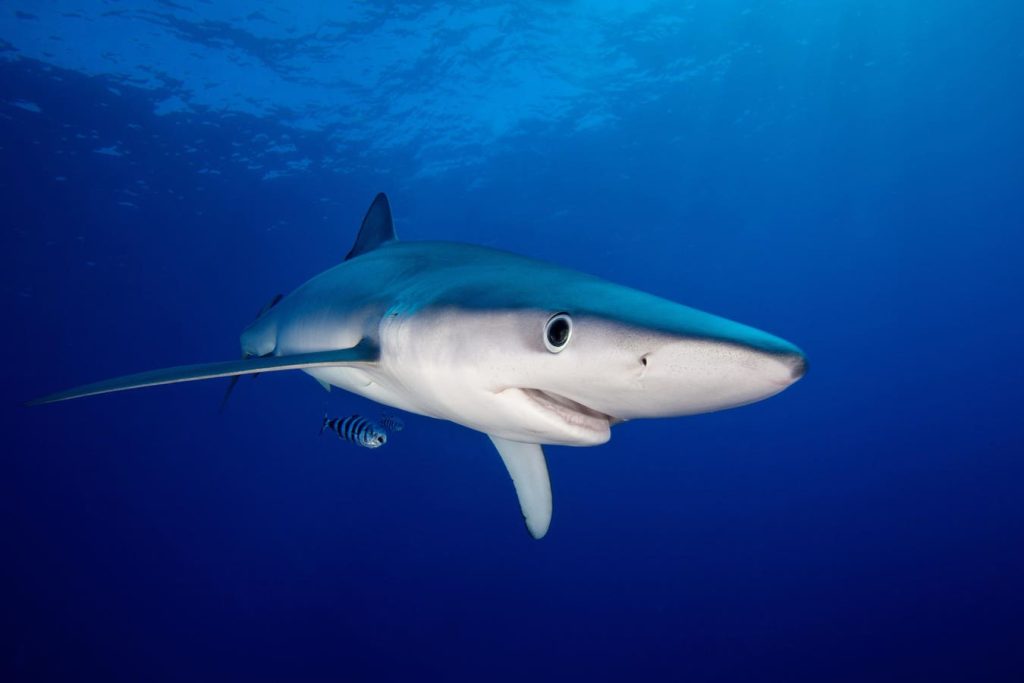A recent encounter off the coast of California between a blue shark and a pod of orcas has left naturalists in awe. In a dramatic showdown captured on film, a blue shark found itself being closely followed by five killer whales in the waters near Monterey. Known for their distinct blue coloration and slender bodies, blue sharks are not typically preyed upon by orcas, making this encounter a rare and fascinating event. Despite their fearsome appearance, blue sharks pose little threat to humans and are an important species in the marine ecosystem, facing threats from overfishing and bycatch in commercial fisheries.
The orcas involved in this encounter are part of a pod known as “Louise’s family,” named after their matriarch. These transient killer whales specialize in hunting marine mammals as their exclusive prey, showcasing their advanced hunting abilities and intelligent social structures. While orcas are typically known to hunt fish, seals, and even other whale species, instances of them hunting sharks have been seen in other regions, notably off the coast of South Africa where a pair of orcas named Port and Starboard have developed a preference for hunting great white sharks. The curiosity of the Monterey orcas towards the blue shark highlights the complexity of interspecies interactions in the marine environment.
This encounter off the California coast is not an isolated incident, as reports of killer whales exhibiting increasingly assertive behavior have been on the rise in recent years. Marine enthusiasts and scientists alike are intrigued by these occurrences, with stories of boats being targeted and even sunk by orcas sparking concern in coastal communities. The recent event in South Africa, where a lone orca named Starboard became the first of his kind to single-handedly hunt and consume a great white shark, raises questions about the evolving dietary preferences and ecological impact of these marine giants. Researchers are now delving into the depths of orca psychology to better understand their behaviors and interactions with other oceanic species.
While encounters between orcas and sharks are rare, they contribute to a larger puzzle that scientists are working to unravel. Footage of orcas feasting on sharks off the Southern California coast earlier in the year underscores the remarkable range of these offshore killer whales, who are seen from the Aleutian Islands in Alaska all the way to Southern California. The curiosity and hunting strategies displayed by orcas in these encounters highlight the awe-inspiring capabilities of these marine giants, while also prompting further investigation into their ecological roles and interactions with other species in the marine environment.
Overall, the encounters between killer whales and their fellow inhabitants of the sea are captivating and complex, leaving scientists and observers alike fascinated by the behaviors and interactions of these apex predators. The need for conservation efforts to protect species like blue sharks and ensure the continued survival of marine ecosystems is highlighted by these encounters, as they showcase the delicate balance of predator-prey relationships in the ocean. As researchers continue to study and learn from these rare and unique encounters, the mysteries of orca behavior and their impact on marine ecosystems are sure to be further unraveled and understood in the future.


